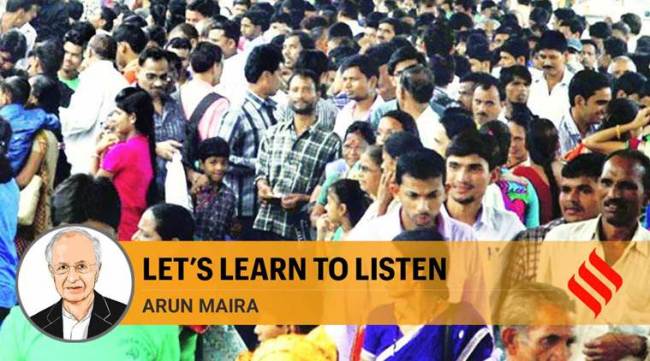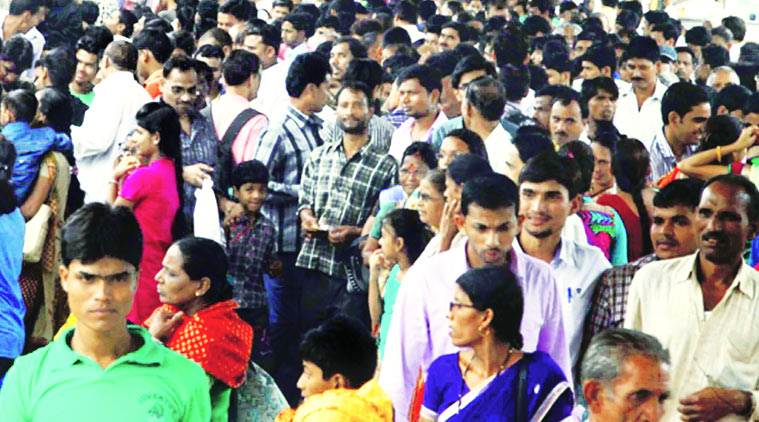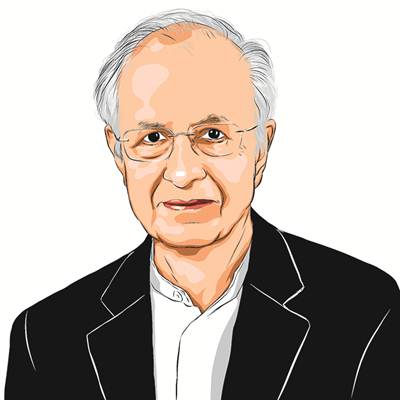Opinion Hearing those unlike us is essential for the health of our society and nation
Let us reach out to a citizen of our country who is “not like us”. Let’s listen to who she or he really is. Let’s start a national listening movement. And lead the world to an International Listening Day.
 India’s democratic and secular Constitution provides a homeland to citizens of a larger number of religions and races and speaking a greater variety of languages than citizens of any other country.
India’s democratic and secular Constitution provides a homeland to citizens of a larger number of religions and races and speaking a greater variety of languages than citizens of any other country.  India’s democratic and secular Constitution provides a homeland to citizens of a larger number of religions and races and speaking a greater variety of languages than citizens of any other country.
India’s democratic and secular Constitution provides a homeland to citizens of a larger number of religions and races and speaking a greater variety of languages than citizens of any other country.
The idea of India is unity in diversity. Nations erect statues to symbolise what they stand for. “Send (the) homeless, tempest-tossed to me. I lift my lamp beside the golden door,” reads the inscription on the Statue of Liberty — the lady with the torch. India has erected a Statue of Unity, in Sardar Patel’s image, twice as tall as the Statue of Liberty.
India’s democratic and secular Constitution provides a homeland to citizens of a larger number of religions and races and speaking a greater variety of languages than citizens of any other country. Whereas tall statues are feats of engineering that can be completed in a few years, nation-building is a complex process which takes decades — even centuries. But it can be shaken in a moment. The foundation of the idea of India — of unity in diversity — has been severely shaken by the Citizenship Amendment Act and fear of a National Register of Citizens.
The ruling party’s leaders say they are implementing Sardar Patel’s vision of a unified India, whose statue, the tallest in the world, they have built. They seem to have lost sight of another statue, less grand than their Statue of Unity but more evocative, which is a better description of India’s journey to build an inclusive nation. This one, on Delhi’s Mother Teresa Crescent, shows Mahatma Gandhi leading a line of diverse Indians — Hindus, Muslims, Sikhs, and others — to peacefully claim their freedom from a foreign empire.
In this, the 150th anniversary year of Gandhiji’s, it behooves our leaders to recall the vision of India that inspired the birth of our free country 72 years ago. It was a grand vision of unity in diversity that inspired the world too. Gandhiji invited students and citizens to study all religions with him in the Bible Room of the Gujarat Vidyapeeth. Where, along with words from many scriptures, his own words are inscribed: “I do not want my house to be walled in and my windows to be stuffed. I want the cultures of all lands to be blown about my house as freely as possible.”
Globally, the vision of one world is cracking. International cooperation in trade and climate is failing. Walls are rising within countries between people with different visions of what a good society is. The world is being “broken up into fragments by narrow domestic walls” as Tagore had feared. Social media, which was expected to bring people together, is perversely driving them apart into conceptually gated communities of people who think alike. They do not listen any more to people not like themselves.
Citizens in democracies have a right — and a responsibility — to speak up. The prime minister reminds them of their responsibilities, gliding over their rights. Protests have erupted on social media and on the streets against the divisive actions of India’s government. A chief minister dares to declare “revenge” against protestors in a democracy. State power has been used to unjustly seize their property. This is “maximum government, minimum governance” at its worst.
Seven years back, India’s citizens had risen up en masse against corruption and violence against women. A chain of coffee cafes had invited people to come in. “Stand up for this! Stand up for that! Let’s sit down and talk, yaar!”, its advertisements said. The government’s leaders should have listened to India’s citizens much better before taking actions that are provoking protests.
Can India become a beacon of unity in diversity as it once was? It will have to heal itself before it can throw light on others. Indians will have to learn to listen to each other calmly, to hear others’ points-of-views, to know others’ fears and hopes, and to respect and celebrate the differences amongst themselves.
Listening deeply to others, especially to those not like ourselves, will tone up the health of our society and our nation. We must learn to listen to why someone has a different point-of-view, and to learn who this different person is — not our stereotype of him or her, judged by the clothes they wear. Sadly, our public discourse, on electronic and social media, and even in our elected assemblies, has degenerated into squabbles about who to blame, rather than a discovery of what “We” — together — want.
Listening, like breathing, is a very simple action. Children learn to breathe and to listen soon after they are born. Then, growing up, humans seem to forget the values of breathing and listening. Yoga teaches us how to breathe well again. By simply breathing deeply and well, the health of our complex bodies and minds is improved. Yoga as a means for personal well-being is India’s gift to the world. It is celebrated as the UN International Yoga Day.
To achieve our vision of unity in diversity, let us switch off our smartphones and stop tweeting and insulting each other for just one day. Let us reach out to a citizen of our country who is “not like us”. Let’s listen to who she or he really is. Let’s start a national listening movement. And lead the world to an International Listening Day.
Maira, a former member of the Planning Commission, is the author of Listening for Well-Being: Conversations with People Not Like Us



